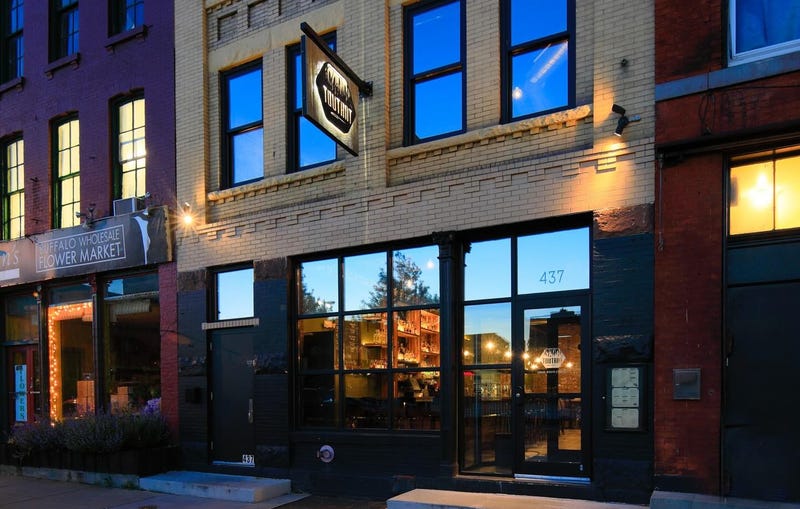Buffalo, N.Y. (WBEN) - The closure of multiple businesses in Downtown Buffalo continues to raise concern levels among fellow business owners in the city.
As announced by ownership on Monday, Toutant, a Cajun-themed restaurant located a 437 Ellicott Street, is set to close on Feb. 15 after nearly 10 years of service.
"For nearly a decade, we’ve had the privilege of stewarding this little corner of Ellicott Street, bringing a touch of Southern hospitality to Buffalo," said owner in a post on social media. "Our mission was simple: To pair culinary creativity with warm, unpretentious service. We aimed to provide a space that was welcoming, casual, yet rooted in discipline and care. Our beverage program mirrored this philosophy, offering quality and technique, balanced with value and a sense of fun sophistication — filling a niche we felt Buffalo needed."
The business will be offered for sale, according to the post, with the hopes of "creating an opportunity for a new generation of entrepreneurs to chase their restaurant dreams."
Owner James Roberts told Buffalo Business First the decision to close was "made proactively to give him more time with his family as his kids get older and have different needs."
"James is one of the most respected chefs I've ever met. I think his place, Toutant, was one of the best restaurants I've ever eaten in Buffalo. So it's a sad day for Buffalo that we're losing that," said Nick Pitillo, owner of Osteria 166 along Franklin Street in Downtown Buffalo. "I know James, and I know he's making a smart business decision, and I know that that didn't go easy for him, because he cares about his people."
Toutant's closure comes nearly a week after Dinosaur Bar-B-Que announced it would be closing shop at its location on Franklin Street in order to open up a new restaurant in the Town of Hamburg.
Other businesses that have closed recently downtown includes Braymiller Market and the Downtown Bazaar along Main Street in the city's Theatre District.
"Chef James and the guys at Dino are smart operators, and they're making business decisions, and they're very difficult to make. So I hope people give them a break and support them in Hamburg, or wherever they're going," Pitillo said. "They're good people, and people are just trying to make ends meet. It's difficult to continue to maintain your priorities, maintain your level of product, and not overpriced yourself out of the market."
Pitillo admits he's not all that surprised by the closures of some of these businesses downtown over the last several weeks.
"It's been very challenging downtown. It's really the post-pandemic era," he said. "I don't know if it'll ever be the same again downtown."
Pitillo feels the concern is felt similarly among other business owners in Downtown Buffalo.
"Certainly there's only so many things you can cut," Pitillo said. "I mean, I'm not getting $25 for a meatball ever. It'd be a damn good meatball, but it's not worth $25. Your wages go up, every expense we have goes up. Combine that with, I don't know the hard numbers, but it's got to be 20%-to-30% of the downtown workforce is not in their offices. It's almost five years, it's tough."
With the lack of people in-and-around the downtown region in recent years, Pitillo had to cut lunch services out of his operations, because the return was not worth it for him. Even on a Saturday night downtown, Pitillo feels the environment is like a ghost town.
While his business is diagonally across the street from the Buffalo Convention Center, he says the flow of people in the area is still no where close to where it was before the pandemic threw a wrench into the growth of the neighborhood.
Pitillo says the bottom line is there needs to be more people in-and-around downtown for businesses to thrive again, whether people are living or working in the region.
"It feels like tens of thousands - I have no idea what those numbers are - but you walk around downtown at 5 o'clock on a Wednesday or Thursday, it used to be bumping. And it's not. Certainly the number of people downtown is concerning for all of us," he said. "The catering piece is a whole nother thing, it's certainly grown. But the à la carte business, virtually in any level of the market, is a struggle."



